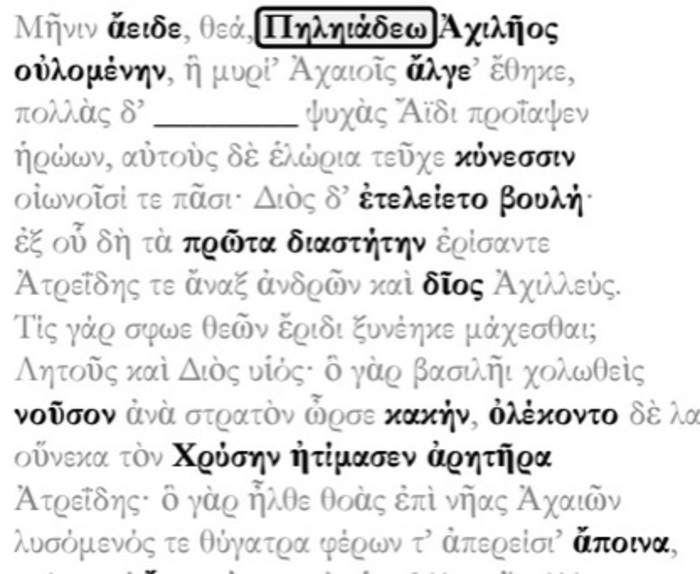Princeton University recently removed the requirement to learn Latin and Greek for classics students. The reason given? Fight against "systemic racism". On its web page,
Diversity and Equity
, the Department of Classics of the establishment explains that the Greco-Roman culture has "instrumentalised, and was complicit, in various forms of exclusion, including slavery, segregation. , white supremacy, manifest destiny, and cultural genocide ”. Andrea Marcolongo, author of
La Langue geniale
:
9 good reasons to love Greek
, (Les Belles Lettres), deplores this decision.
She recalls the importance of learning Latin and Greek to develop a critical mind and reconnect with beauty, poetry and the depth of words.
LE FIGARO.
- How do you feel about the removal of the obligation to learn Latin and Greek for classics students at Princeton?
Andrea MARCOLONGO.
-
I don't just feel an upheaval but a great worry.
This is not the result of the zeitgeist, but the expression of unease.
It is not strictly related to the classic letters, but to our ability to accept thought today.
There is a desire to renounce the debate, that is the risk underlying this deletion.
In this hypocritical desire to want to respect the whole world, we lose the strength and the desire to support an opinion.
Thought cannot be neutral.
The ancient languages remind us of just that;
they allow us to form a thought and thus begin to say no.
Does this phenomenon already exist in Europe?
For the time being, this desire to stop debating is mainly in the United States. There is no longer any debate, only this “cancel culture”, this culture of cancellation linked to political correctness. One prevents the other from taking a position rather than debating. It's easier, more lazy. Except that by dint of "canceling" everything, it will end up not having anything left. I find it frightening that during conferences people can ask me the question: "Should we condemn Plato because he was a misogynist?" Others wonder: "Should we stop learning Homer because he does not respect women enough?" This is a false debate! We lost perspective. We read texts to study languages; maybe some of them contained misogynistic and racist comments from the point of view of our time,but it gives us the opportunity to notice or dispute these aspects. The antidote to racism is not to erase culture but to know how to take a stand. Among the Greeks, the tragedy was certainly used to stage dramas for the pleasure of the spectators but also and especially to show the most obscure aspects of the human being. Through catharsis, we were thus able to understand our emotions and accept them.
“If we judge languages by today's yardstick, who knows what we'll think of our own use of language tomorrow?
"
Isn't it absurd to want to transpose a cultural model to a society that is several millennia old?
Yes. We cannot make a language feel guilty with values from an era that is not its own.
Language does not have to be a political flag.
It is for this reason that I find that all these debates that are injected into ancient languages on racism, feminism… are very far from the Greek spirit.
In my opinion, it is not the language that is racist but its users who are.
I live with the worry of knowing that there are people who look at ancient languages with a look that censors.
If we judge languages by the yardstick of today who knows what we will think of our own use of language tomorrow?
How do you explain this loss of Latin and Greek?
I think it's a matter of intellectual laziness. Classical languages are removed to avoid thinking. Intellectual democracy not only made it possible to think but it forced to think. In Ancient Greece, Pericles paid people who could not afford to go to the theater, because he always said that the most dangerous citizens were those who had no culture. He was right. It was a commitment to the community, to society. Today, all forms of culture have become outdated. People are asked to perform well, but not to have depth of thought. Nevertheless, I think that this whole system of political correctness, of censorship, of such polite language, has its limits. Maybe people will want to come back to intellectual activity at some point.We have the antibodies to protect us against this censorship from the United States.
The enthusiasm for your books (
La langue geniale
, a tribute to ancient Greek,
sold 150,000 copies in Italy and published in 27 countries
) proves it.
I hope so.
One of the uses of ancient languages is to teach us the value of time.
It is therefore very anti-modern to learn these languages!
It takes years to learn them.
However, we live in an age of speed where everything has to be very fast, almost instantaneous.
So that teaches us a certain discipline.
We have a problem with the past and with time.
Everything that is done quickly is not necessarily good.
Ancient languages give us back a certain notion and value of time.
"You shouldn't learn a language based on its usefulness, like a tool, otherwise you cut yourself off from its beauty, its culture, its mythology"
Mastering ancient languages also allows you to better understand the words you use and therefore to have a more accurate thought.
Yes, it allows discussion.
When we have the right word, we express ourselves better.
This is why I focused in my last book on etymology.
An ancient language forces us to inhabit the essence of a language, to reconnect with poetry and the depth of words.
We are not just language lawyers.
Thus, learning ancient languages not only helps to acquire better vocabulary but also to find the right word and build better thinking.
You should not learn a language based on its usefulness, as a tool, otherwise you will cut yourself off from its beauty, its culture, its mythology.
So what can be done to restore the taste for ancient languages?
It is enough to offer someone Homer, even translated into French. Thus, one can immerse oneself in the incredible beauty of ancient literature. Rather than spending his time debating the usefulness or the uselessness, the racism of ancient languages, I propose to return to the beauty of languages with a glance without a priori. The text is beautiful. We have to study this language which speaks to us about ourselves.








/cloudfront-eu-central-1.images.arcpublishing.com/prisa/HRWCW4YLHVGG7KFV7CB2ME44RE.gif)